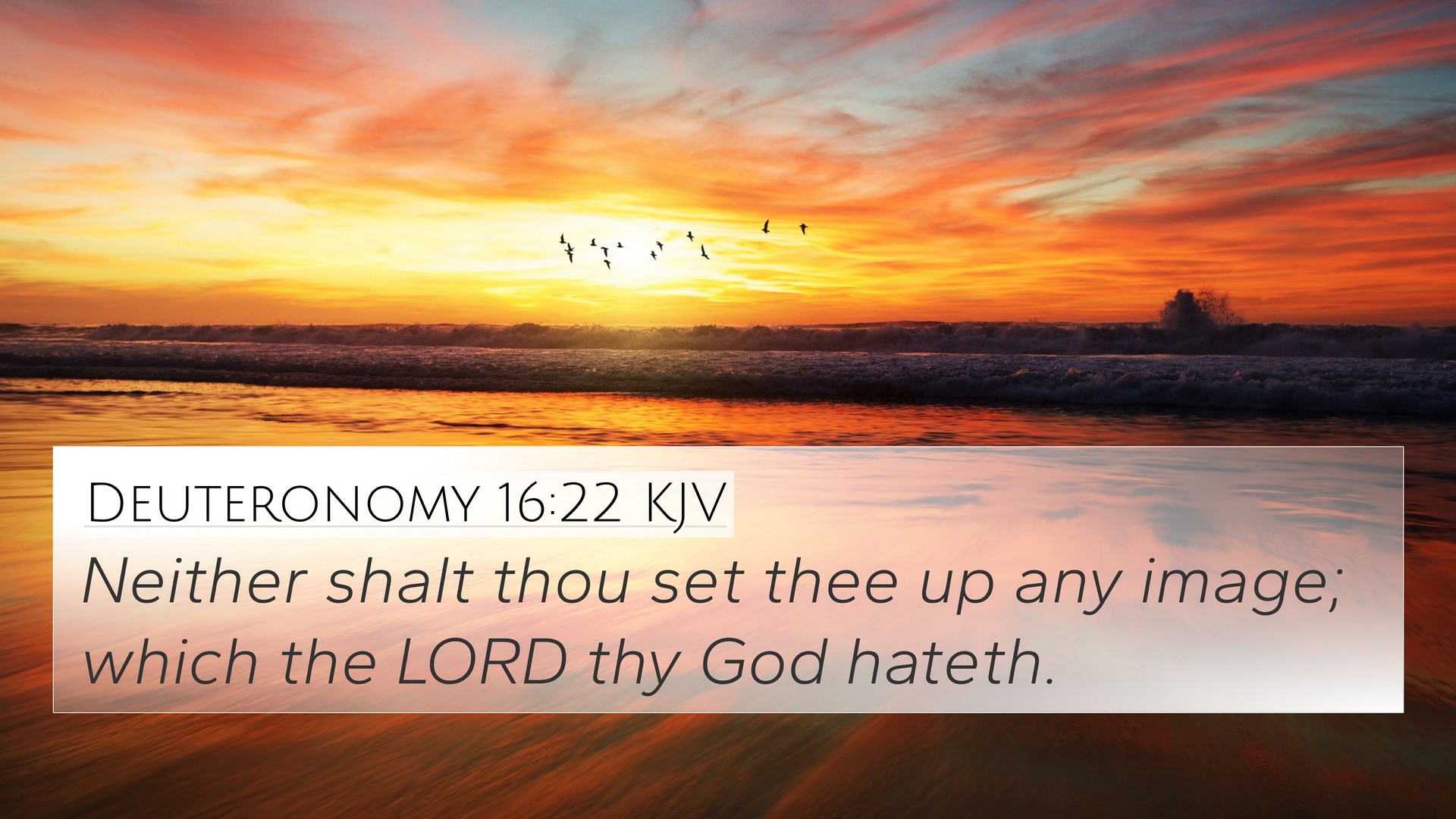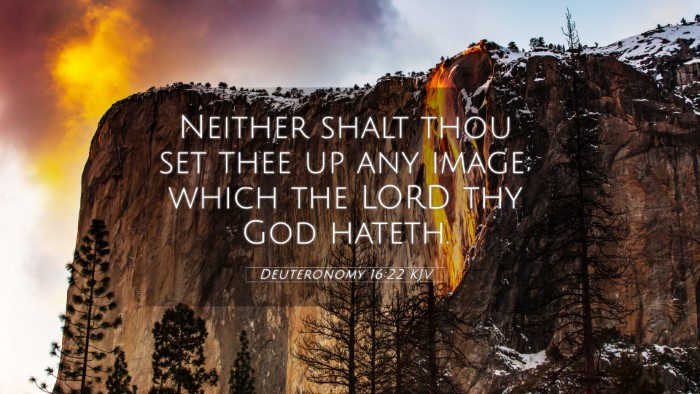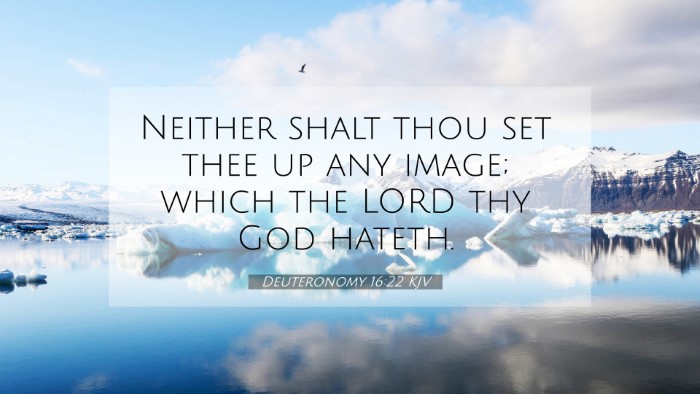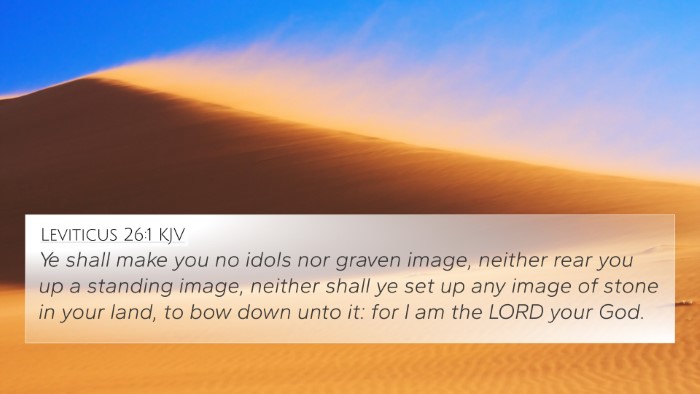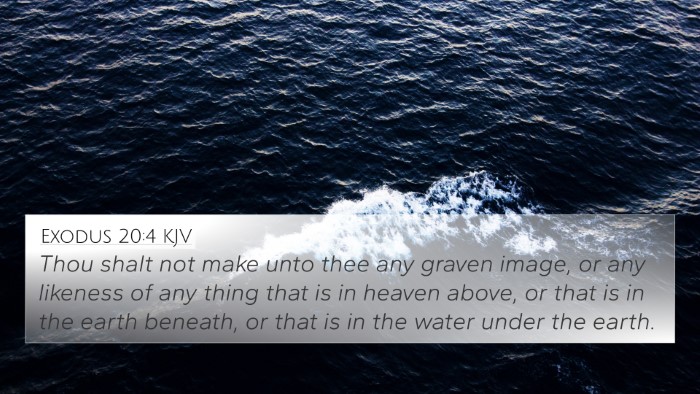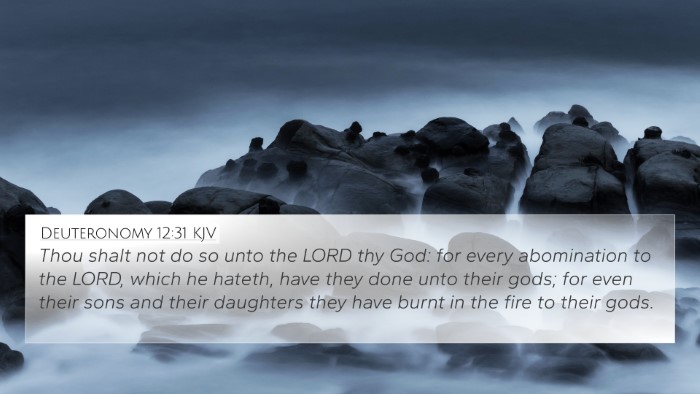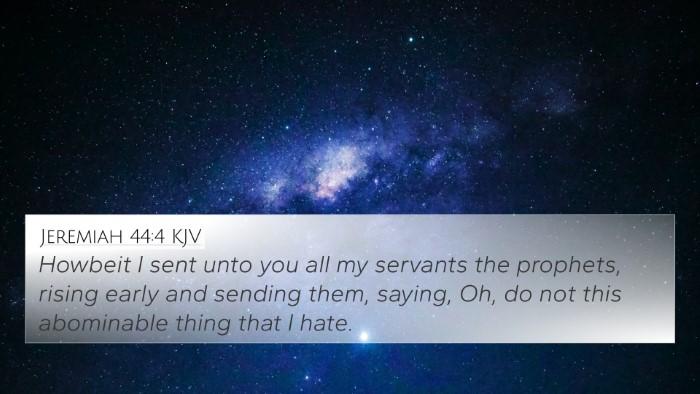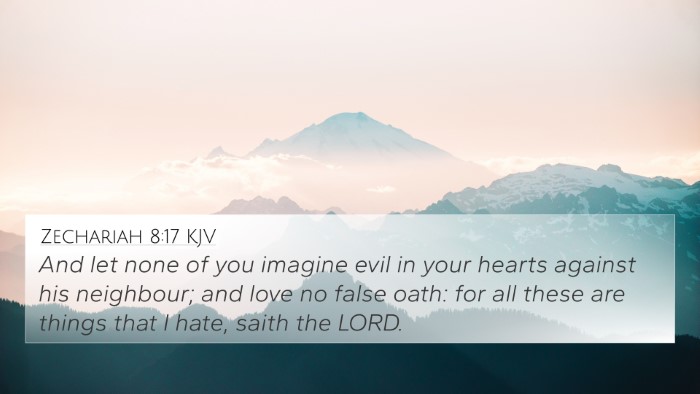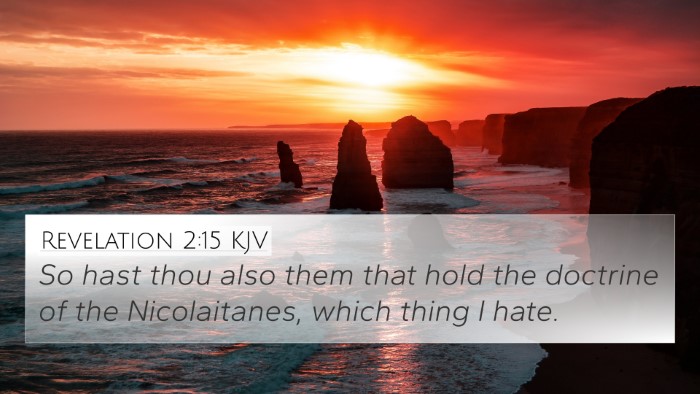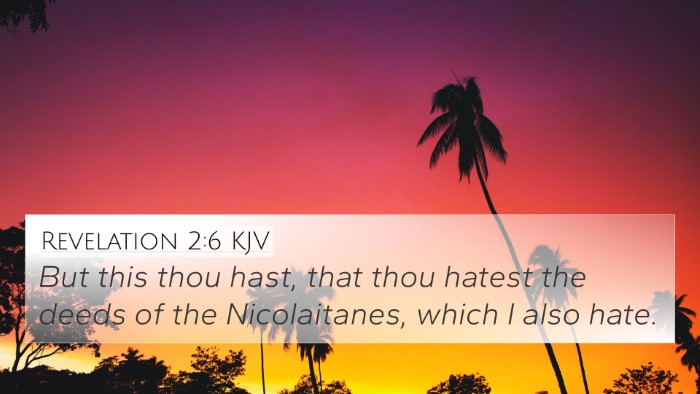Understanding Deuteronomy 16:22
Verse: “Neither shalt thou set thee up any image; which the Lord thy God hateth.”
Summary of Deuteronomy 16:22
This verse serves as a prohibition against idolatry, emphasizing the importance of worshiping God in a pure and untainted manner. It stresses that the Lord detests any form of idol worship or the setting up of images, which can distract or lead His people away from true devotion.
Commentary Insights
Insights from various public domain commentaries provide a deeper understanding of this scripture:
- Matthew Henry: Emphasizes the severe warning against idolatry, underscoring how detrimental it is to spiritual health. He interprets the prohibition as not only a command but also an expression of God's jealousy for His people's undivided devotion.
- Albert Barnes: Comments that the "image" refers to both physical idols and the concept of worshiping anything that rivals God's unique position. He highlights that God’s hatred towards idols stems from their inherent inability to convey true divine essence.
- Adam Clarke: Discusses the cultural context of idolatry in ancient Israel, explaining how the surrounding nations influenced the Israelites, leading them to stray from their true God. His insights reveal the historical significance behind this commandment.
Historical Context
This verse is set against the backdrop of Israel's covenant relationship with God. The Israelites, guided by laws to establish their identity as God's chosen people, are cautioned against adopting foreign practices that compromise their faith.
Thematic Connections
Deuteronomy 16:22 has thematic connections with various other scriptures, showcasing the consistency of the message against idolatry throughout the Bible.
Related Bible Cross-References
- Exodus 20:4-5: "Thou shalt not make unto thee any graven image..." emphasizes the prohibition against idols.
- Leviticus 26:1: "Ye shall make you no idols nor graven image..." reiterates the divine command to avoid idolatry.
- 1 John 5:21: "Little children, keep yourselves from idols..." suggests the New Testament's continued relevance of this command.
- Isaiah 44:9-10: Discusses the foolishness of idol-making, illustrating God's disdain for man-made images.
- Jeremiah 10:14: Identifies the folly of trust in idols, aligning with the warning in Deuteronomy.
- Romans 1:23: Pertains to exchanging the glory of God for images, connecting Old Testament warnings with New Testament teachings.
- Psalms 115:4-8: Describes the impotence of idols compared to the living God, reinforcing the futility of idolatry.
Insights on Inter-Biblical Dialogue
The connections between Deuteronomy 16:22 and other scriptures create a profound dialogue about God's expectations of His followers. This verse’s underlying theme of exclusive devotion is echoed consistently across both the Old and New Testaments.
Tools for Bible Cross-Referencing
To dive deeper into the study of this verse and its connections, consider using:
- Bible concordance for locating related scripture.
- Bible cross-reference guides that provide contextual insights.
- Cross-reference Bible study methods to discover thematic links.
- Comprehensive Bible reference resources available for thorough exploration.
Conclusion
In conclusion, Deuteronomy 16:22 serves as a powerful reminder to maintain devotion to God alone, free from distractions of idolatry. Through the insights of notable commentaries and connections made in scripture, we can better understand the vital importance of worshiping God genuinely.
Utilizing tools for Bible cross-referencing can enhance our study, revealing deeper insights into related themes and ideas throughout the biblical text. By embracing this systematic approach, we can improve our understanding of how biblical verses relate to one another, enriching our spiritual journey.
